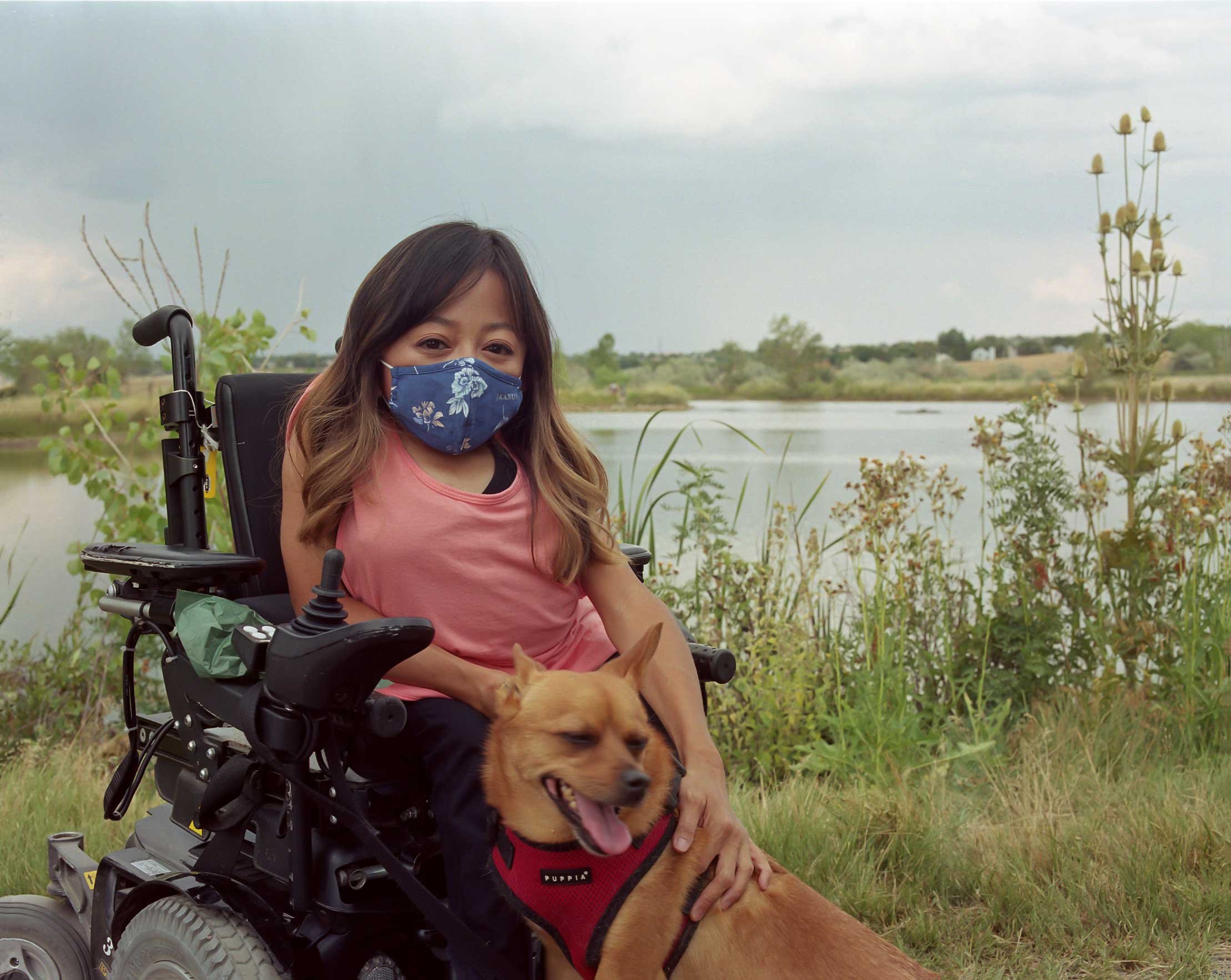Teresa
Nguyen
Denver, Colorado
“Honestly we are not invited to the table of these conversations because we are obviously an afterthought of many plans of society. Government or non-government. The disability community is an afterthought in everything.”
Ryan Roach: What are your thoughts on how the government and the media have been treating these populations they have deemed “vulnerable”?
Teresa Nguyen: Oh gosh. [Laughs]. Well, I think in application like in the news we’ve seen overall that outbreaks are super high in institution-like settings. That means nursing homes or home-congregate settings with more than four people that reside in a home that are not family. I think many people with disabilities are at higher risk to be in these institutions. And this has not been handled. [Laughs]. We still see outbreaks everyday in nursing homes. We see it on the news. We hear about it all the time. So I don’t think the government has handled this appropriately. But kind of in a more bigger issue outside of the pandemic it brings to light the underlying philosophical context of why institutions are the preferred choice for people with disabilities when we know they are not safe. And I hope in light of all these casualties, which obviously fall a lot on our community, people with disabilities, I hope it brings to light the bigger issue of why we have been trying so desperately to eliminate institutions. In addition to that, folx with intellectual and developmental disability have a higher rate of death than the average person in our population. And so I think that speaks volumes to the fact that this vulnerable population is often missed when we are defining folx who are at risk.
RR: During the pandemic, society has been able to accommodate the general public with accommodations, like work from home, that have been asked for previously by the disabled, chronically ill, immunocompromised, and neurodiverse communities, yet these communities were typically denied. Why do you think society has been able to accommodate the general public when these accommodations have been denied previously?
TN: I think one big obvious reason is that employers have seen the disability community as a small community. While that is not true, we definitely know the statistics around that and we know there is still such stigma in society. When things like this pandemic happen to the larger overall population of people I think it brings about a bigger response like accommodations. So I think we still have a lot of work to do to get society to recognize how big our community is as people with disabilities. And the impact we can have on the economy.
This again goes back to a historical problem. People with disabilities struggle with employment in general and finding the appropriate work setting for them. And so you don’t see many people with disabilities working and contributing to the economy because of that struggle. And I think that contributes to the smaller narrative that society has of us participating in the workforce. You know as a country we are economically driven so I think that anytime there is a risk of the economy being impacted in any way, folx can be flexible and employers can be flexible to maintain that sense of security. We just haven’t seen people with disabilities being either the majority or even equal in the workplace to their non-disabled counterparts.
RR: Over the past few months, media correspondents and politicians have continuously talked about “vulnerable” populations, yet rarely invite anyone from these communities to represent themselves or their communities. Why do you think that is?
TN: Welcome to my question everyday. [Laughs]. Honestly we are not invited to the table of these conversations because we are obviously an afterthought of many plans of society. Government or non-government. The disability community is an afterthought in everything. So that’s one. Two, we don’t have people with disabilities inside the system that makes these plans. And so part of engaging the community with who you are representing or who you are developing a plan for or a policy for is stakeholder engagement. And really engaging the community that you are wanting to impact. Sadly, you reach these communities by having somebody that represents that community on the professional side, on the team side, on the policy side. We don’t really see people already in these fields. So no one is really invited to the table because there is no access to this community. No one engages us and no one has tried in terms of even having that representation inside of these areas that we are talking about. Inside the policy areas, the healthcare areas, the infectious disease teams. We don’t see people who look like us on those teams. Until there is somebody inside of these systems that look like us I don’t know if we will ever be invited to the table for these conversations.
